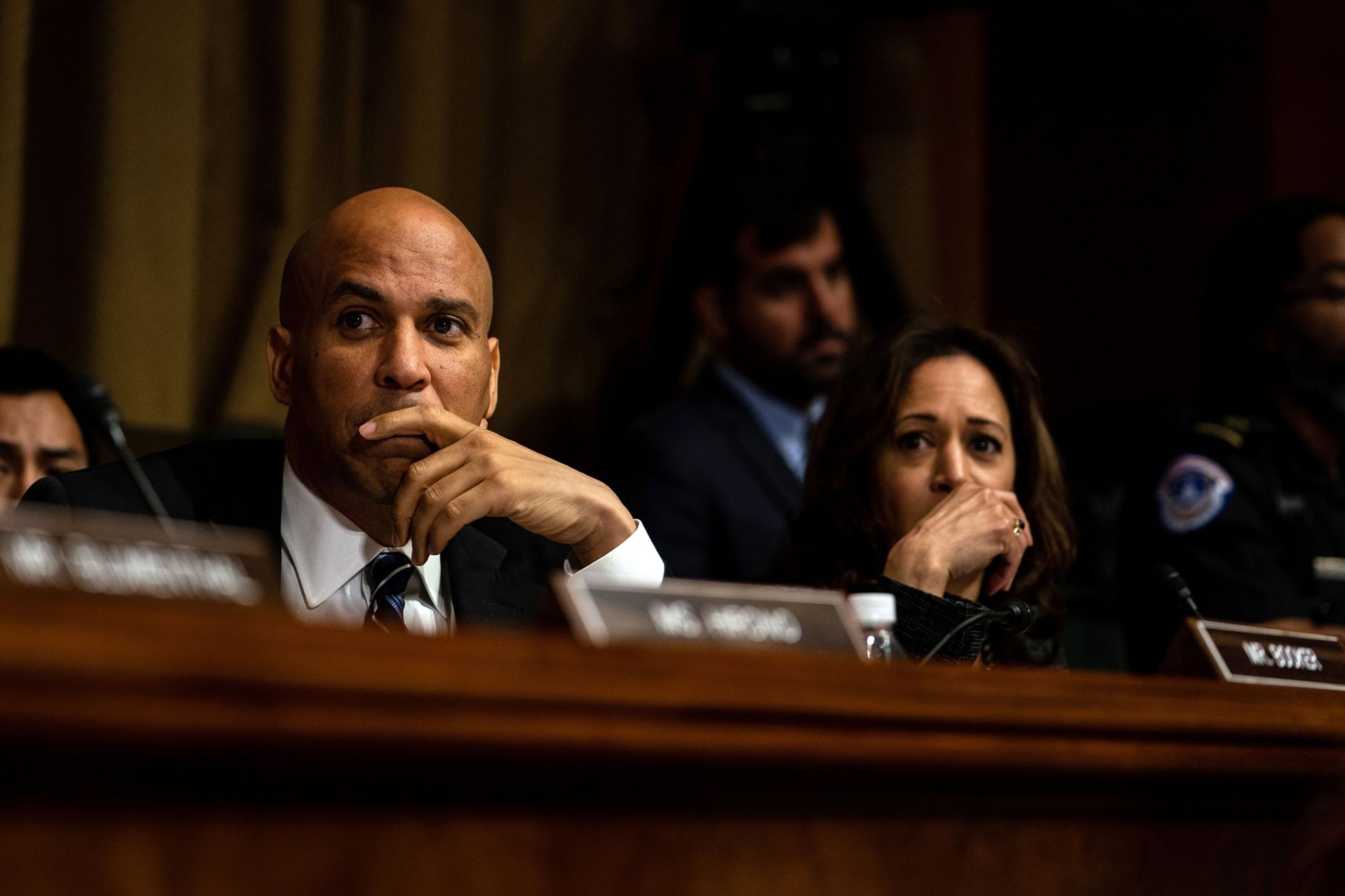
Perhaps the greatest proof the American people have rejected the War on Drugs is that presidential candidates can favor legalization at no political cost.
5 min read
Opinions expressed by Green Entrepreneur contributors are their own.
Two senators who are leading candidates in the race for the Democratic presidential nomination have already accomplished something early in the campaign – they’ve made legalization of marijuana at the national level a primary issue.
Sen. Cory Booker of New Jersey already has introduced legislation to remove marijuana from the federal list of illegal drugs and continues to take that position as a candidate. And Sen. Kamala Harris of California this month very publicly declared her support for legalizing pot on “The Breakfast Club” morning radio show in New York City.
She couldn’t have been much more straightforward.
“Let me just make this statement very clearly: I believe we need to legalize marijuana,” Harris said on the show. “Now, that being said – this is not a “but,’ this is an ‘and’ – and we need to research…the impact of weed on a developing brain.”
She said leaders must also discuss a way to create standards for measuring impairment of drivers under the influence of marijuana.
Related: This Week in Weed: High End Hemp!
Much Ado About Nothing?
That all seems clear, but of course there was an immediate political dustup over a side issue. In this case, it revolved around whether Harris listened to Tupac and Snoop Dogg when she tried marijuana in college (neither had released records before she graduated in 1986). Many media outlets reported she said this in the “Breakfast Show” interview.
However, the video of the interview seems to show she was answering another host’s questions (there are multiple hosts) about music she listens to, not an interjected question about what she was listening to while using marijuana, according to the New York Times.
The more important issue for cannabis entrepreneurs and consumers is that Harris, like Booker, put legalization of marijuana at the federal level on the front burner. When talking about using marijuana in college, Harris added, “and I inhaled.” That’s a reference to then-presidential candidate Bill Clinton’s statement in 1992 that he tried marijuana in college but “didn’t inhale.”
The marijuana debate has come a long way in the intervening 27 years. What used to be the source of a “gotcha” question – “have you ever used marijuana?” – is now used by a candidate to talk about legalization.
Related: 3 Compliance Considerations for Multi-State Cannabis Businesses
Booker Forces Hand
Harris, the former attorney general of California, had little choice but to take a position on the issue. Booker filed legislation in 2017 that called for removing marijuana as a Schedule I illegal drug. He’s remained a strong supporter of legalization.
The Drug Enforcement Administration maintains the schedule of illegal drugs , which was started during the Nixon Administration in the early 1970s. It essentially launched the War on Drugs and led to creation of the DEA in 1973.
Schedule I is for the most stringently restricted illegal drugs. In the eyes of the federal government, marijuana is as dangerous and addictive as heroin and cocaine. That’s an official position that stands at odds with what state voters and legislatures have done. In 10 states, recreational marijuana is legal., while 33 states have legalized medical marijuana.
Booker’s legislation not only would legalize pot, but also withhold federal funds from states that maintain marijuana laws that disproportionately impact minority communities.
Arguments for legalization.
What voters will hear over the next few months from politicians will likely revolve around the following arguments for legalization.
The War on Drugs hurts minorities the most: FBI statistics show that blacks are 3.73 times more likely to get arrested for marijuana possession than whites, according to an analysis by the American Civil Liberties Union. The ACLU also reported that marijuana possession arrests account for more than half of all drug arrests. Harris mentioned this in her interview, noting that “young men of color” have been arrested at rates higher than other young men.
The people have spoken: In vote after vote in state after state, people have approved both legal recreational and medical marijuana.
Marijuana has health benefits: Few will come out and say that marijuana has health benefits, although a lot of research shows that is the case. But they will argue that more research needs to be done and that can’t happen with marijuana being illegal at the federal level.
Treat it like alcohol: Even if they don’t argue any of the above, some politicians already are saying that marijuana should be made legal and regulated like alcohol, another substance that used to be illegal.
How President Donald Trump will position himself on the issue is unclear. However, in June 2018 he said he’d “probably” support bipartisan legislation that lifted the federal ban on marijuana and leave it to the states to decide.
To stay up to date on the latest marijuana-related news make sure to like dispensaries.com on Facebook
https://www.greenentrepreneur.com/article/328453

